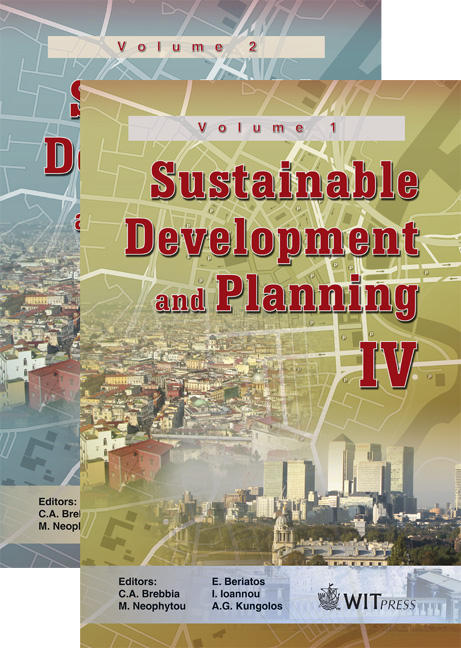Sustainability Versus Urbanism: A Fear-formed Impasse
Price
Free (open access)
Transaction
Volume
120
Pages
8
Page Range
25 - 32
Published
2009
Size
1,026 kb
Paper DOI
10.2495/SDP090031
Copyright
WIT Press
Author(s)
J. Callender
Abstract
The current interest in sustainability has created difficulties for those attempting to rethink issues of urban form. Most challenging is the lack of consensus on what is meant by a sustainable city. At first glance, this lack of consensus could be pinned on our inability to define sustainability or to clarify the motives that have spawned its remarkable rise. We intend to argue, however, that it is not a failure of lexicon, but the fact that implicit definitions of, and seldom-articulated motives for, sustainability are contrary to our notions of urban life. When addressing sustainable issues, international design journals frequently highlight single-family, detached housing using advanced technologies, recycled and recyclable materials, and passive strategies as models. In America, LEED checklists and the annual Solar Decathlon reinforce this nascent impression that sustainability is first and foremost a matter of technological advance, which does not necessitate a corresponding rethinking of land use, density or urban form. Even when second and third looks reveal the deeper importance of land use planning and life cycle analysis, seldom is perception of form broached. The experiential appears outmoded in the face of such dire concerns. This paper will relocate perceptual concerns to the forefront of developing a sustainable city in two ways. Firstly, utilizing frameworks provided by Henri Lefebvre and Doreen Massey, we will argue the primacy of the city in fostering sustainable ways of life through proper land use, density, and consolidation of resources. Secondly, turning to Hegel, Merleau-Ponty, and Judith Butler, I will argue that the creation of a phenomenal city – a city rooted in the bodily experience of desire – is the necessary trigger to spur human migration to technologically sustainable cities. Keywords: sustainability, urban issues, phenomenology, desire, density.
Keywords
sustainability, urban issues, phenomenology, desire, density.





